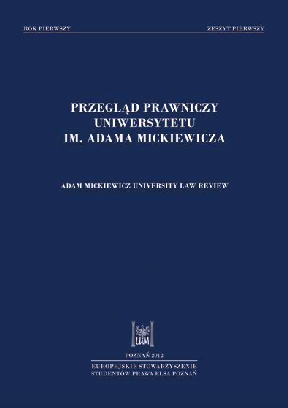Sukcesja państw po rozpadzie Socjalistycznej Federacyjnej Republiki Jugosławii
The succession of states after the breakup of the Socialist Federal Republic of Yugoslavia
Author(s): Irena Alicja SzymanowskaSubject(s): Post-War period (1950 - 1989), Transformation Period (1990 - 2010), Post-Communist Transformation
Published by: Uniwersytet Adama Mickiewicza
Keywords: Agreement on Succession Issues; Arbitration Commission of the Peace Conference on the former Yugoslavia; break up of Yugoslavia; international agreements;SFRY; succession of states; Vienna Convention;
Summary/Abstract: The Socialist Federal Republic of Yugoslavia ceased to exist in 1991, though some topics concerned with the succession of its constituent states were not regulated for a long time afterwards. This issue and the efforts to solve it were examined by the Arbitration Commission of the Peace Conference on the former Yugoslavia. When answering all the related questions, the Arbitration Commission used as a basis the 1978 Vienna Convention on the Succession of States in respect of Treaties and the 1983 Vienna Convention on the Succession of States in respect of State Property, Archives and Debts. The final solution to the problem of SFRY succession was found in 2001 when the Agreement on Succession Issues was signed, although it came into force three years later. There were no problems with the succession of citizenship. Under the 1974 Constitutional Act of SFRY, there were two citizenship in the federation – federal and republican. Therefore, after the breakup of Yugoslavia, republican citizenship became the citizenship of a new state.
Journal: Przegląd Prawniczy Uniwersytetu im. Adama Mickiewicza
- Issue Year: 2015
- Issue No: 5
- Page Range: 23-38
- Page Count: 16
- Language: Polish

